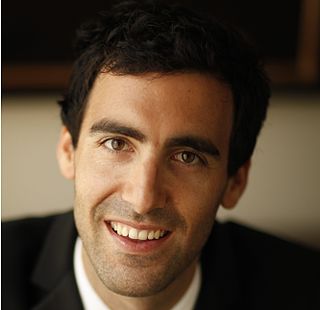A Quote by Om Malik
A lot of what people are calling 'artificial intelligence' is really data analytics - in other words, business as usual. If the hype leaves you asking 'What is A.I., really?,' don't worry, you're not alone.
Related Quotes
I think whatever nation or whoever develops one artificial intelligence will probably make it so that artificial intelligence always stays ahead of any other developing artificial intelligence at any other point in time. It might even do things like send viruses to a second artificial intelligence, just so it can wipe it out, to protect its grounds. It's gonna be very similar to national politics.
I think that the artificial-intelligence people are making a lot of noise recently, claiming that artificial intelligence is making huge progress and we're going to be outstripped by the machines. But, in my view, this whole field is based on a misconception. I think the brain is analog, whereas the machines are digital. They really are different. So I think that what the machines can do, of course, is wonderful, but it's not the same as what the brain can do.
The chances of human beings being the only intelligent form of life in the universe are so minuscule that it's really kind of crazy to actually - no scientist could ever argue that we would be alone. It's much more likely that there are hundreds of thousands of other intelligences and other life forms out there in the universe just based on a strictly mathematical formula. And what that means is that artificial intelligence has probably already occurred in the universe.
Let the jerks of the world serve as the perfect example of what you don't want to be. You'll be a heck of a lot happier, and in the long run, there's a chance that other person at work will end up asking what your secret is. Why are you the happy one? In other words, don't let your thoughts think you. Besides, if you're really gonna get pissed, don't waste it on your family, friends, or coworkers, save it for something that really matters.
I was radicalised by being a minister. That's when I saw how the system really worked. And that is not a very usual process, but it certainly happened to me: it gave me a lot more experience, it helped me to understand where power really lay, develop strategies for undermining or changing it, and so on. But that isn't the norm. Mr Gladstone moved to the left as he got older, and one or two other people have, but normally you swing the other way.




































